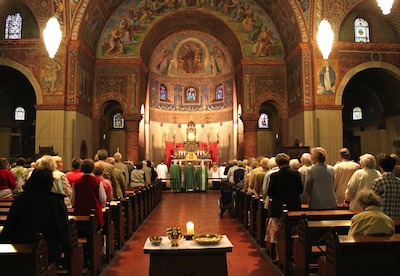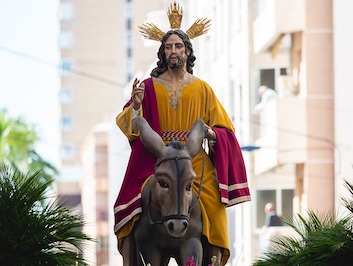The church in modern times faces a huge challenge: many people leave the church. I often come across conversations such as this: “Oh they used to come to the church earlier times. Now they are no more practicing Christians.
We often refer to church as a family. If that is the case, why should someone leave the family? Most of the problems we face in the church are in fact, problems in the families as well. People are treating their churches just like they treat their families. And that is the way it should be. Theologically the church is family – it’s not like family, it is family.
Many of us for various reasons, largely use the family for our own needs and conveniences. We want the family around, but on our terms. We want the family for valued contact at key moments – weddings, births of children, funerals, anniversaries, birthdays, and so on – but we don’t want a relationship to it that is really committed and regular.
A lot of families are like that. They understand this, accept it, swallow hard sometimes and yet remain a family in spite of all the differences and broken relationships. Have a peep into our own families: Who is in and who is out? When does someone cease to be a “practising” member of a family? Does someone cease to be a member of a family because he or she doesn’t come home much any more? Do we refuse to give a wedding for a son or daughter just because he or she, caught up in youth and self-interest, hasn’t come home the last couple of years for Easter and Christmas? These are concrete life situations we come across. Yet, in spite of all this, one remains a member of one’s family.
In any extended family, it’s natural that, while everyone is a member of the family, there will be different levels of participation. Some will give more, others will take more. Some, by virtue of maturity, will carry most of the burden – they will arrange the dinners, pay for them, keep inviting the others, do most of the work, and take on the task of trying to preserve the family bond and ethos. Others, because of youthful restlessness, immaturity, self-interest, confusion, peer-pressure, laziness, anger, whatever, will carry less, take the family for granted, and buy in largely on their own terms.
That describes most families and soon we would realise that it is also a pretty accurate description of most churches. There are different levels of participation and maturity, but there is only one church and that church, like any family, survives precisely because some members are willing to carry more of the burden than others. Those others, however, except for more exceptional circumstances, do not cease being members of the family. They ride on the grace of the others, literally. It’s how family works; how grace works; how church works.
Church must be understood as family: Certain things can put you out of the family, true. However, in most families, immaturity, hurt, confusion, distraction, laziness, youthful sexual restlessness, and self-preoccupation – the reasons why most people who do not go to church and stay away – do not mortally cut off our connection. We remain a family member. We don’t cease being “a practicing member” of the family because for a time we aren’t home very much. Families do understand this. Ecclesial family, the church, I believe, needs to be just as understanding.
Prayer
God, help your church to walk in a manner worthy of the calling You have given us. Grant us patience for one another, bearing with one another in love. May we walk humbly with You, Lord, growing in peace, love and joy
By Fr Jose Cherukara CMF
 Fr Jose is a Claretian full time missionary, based in Hong Kong. He is the Editor of the diocese’s newspaper Sunday Examiner and a member of the advisory board of Christian programming for Radio and Television Hong Kong. Fr hosted the much popular programme Minutes that Matter, for RTHK. Listen to video commentaries by Claretian priests, in Italian and English: https://sundaycommentaries.wordpress.com
Fr Jose is a Claretian full time missionary, based in Hong Kong. He is the Editor of the diocese’s newspaper Sunday Examiner and a member of the advisory board of Christian programming for Radio and Television Hong Kong. Fr hosted the much popular programme Minutes that Matter, for RTHK. Listen to video commentaries by Claretian priests, in Italian and English: https://sundaycommentaries.wordpress.com













